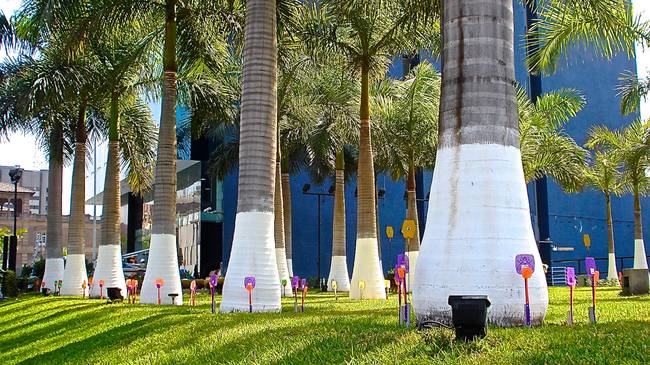Arte y Optica
Link zum Projekt "Milagros y Flores Cuánticas, Lima"

Hochauflösendes Bilder herunterladen
Wunder und Quantenblumen
Interaktive Licht und Klang Installation
Fundación Telefónica Lima, Perú
Kurator: Sean Cubitt
http://seancubitt.blogspot.ch/2013/05/arte-y-optica.html
Art and optics in the 21st century: art at the speed of light.
But light has been travelling such a long time. The light of an older sun illuminates old photographs. The light that travels across fibre optic telecommunication networks seems instant, but in reality switches, glitches, delays and detours interrupt and interfere in the travel of light. Light is not only our servant: it lives and breathes with its own life, and travels in its own good time, gathering in our eyes, dispersing through our cities, scattering across our landscapes. From burning branches in the depths of neolithic caves to laser displays in the great cities, light has illuminated every human act since first we walked on two feet. To celebrate, to enquire, and to enter into a new dialogue with light ? that is the challenge taken up by the artists drawn together around this exhibition . . .
like Fireflies to a LED. . .
Wunder und Quantenblumen
Fundación Telefónica, Lima - Perú
Fotografíe: Archiv Francesco Mariotti


















